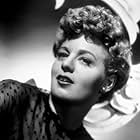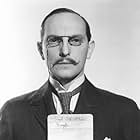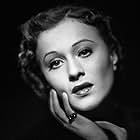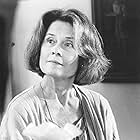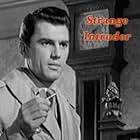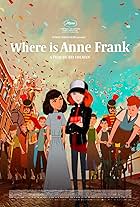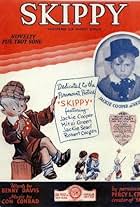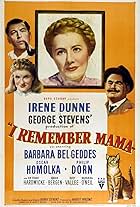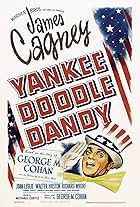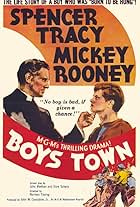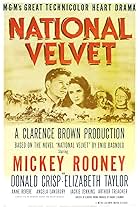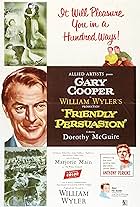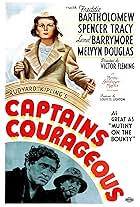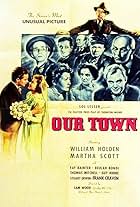During World War II, a teenage Jewish girl named Anne Frank and her family are forced into hiding in the Nazi-occupied Netherlands.During World War II, a teenage Jewish girl named Anne Frank and her family are forced into hiding in the Nazi-occupied Netherlands.During World War II, a teenage Jewish girl named Anne Frank and her family are forced into hiding in the Nazi-occupied Netherlands.
- Won 3 Oscars
- 9 wins & 14 nominations total
Dodie Heath
- Miep Gies
- (as Dody Heath)
Arthur Berkeley
- Dutch Workman
- (uncredited)
Robert Boon
- SS Man
- (uncredited)
John Corrydon
- Dutch Workman
- (uncredited)
Del Erickson
- SS Man
- (uncredited)
Gretchen Goertz
- Sanne Devries
- (uncredited)
William Kirschner
- Workman in Shop
- (uncredited)
Edmund Purdom
- British Radio Announcer
- (voice)
- (uncredited)
Storyline
Did you know
- TriviaAudrey Hepburn was first offered the role of Anne Frank, and Otto Frank was among those who nominated her. She refused it for three reasons. Firstly, she had decided to accept the role in Green Mansions (1959). Secondly, she had lived in occupied The Netherlands during the war and had seen the Nazis carry out street executions and watched as they herded Jews onto boxcars to carry them to concentration camps. She knew that making the film would bring back memories that were far too painful for her. However, thirdly, she was 30 and felt that she was too old to play a teenage character convincingly on screen.
- GoofsAnne Frank was given the diary for her thirteenth birthday, a few days before they all went into hiding and not after going into hiding as depicted in the film.
- Quotes
Anne Frank: I know it's terrible trying to have any faith when people are doing such horrible... But you know what I sometimes think? I think the world may be going through a phase, the way I was with mother. It'll pass. Maybe not hundreds of years, but someday. - I still believe, in spite of everything, that people are really good at heart.
- Crazy creditsAt the end, neither a "The End" credit nor a cast list appears, only the title of the film once more ("The Diary of Anne Frank").
- Alternate versionsOriginally released at 170 minutes, then later cut and available only in 156-minutes version. Complete edition has been recently restored on video.
- ConnectionsFeatured in George Stevens: A Filmmaker's Journey (1984)
- SoundtracksBerg op zoom
(uncredited)
Traditional
Featured review
Just as Otto Preminger gambled in the casting of unknown Jean Seaberg in the title role of "St. Joan," so George Stevens similarly took a big risk with Millie Perkins in "The Diary of Anne Frank."
As the story goes, Stevens saw model Millie on a magazine cover, fell in love with her expressive eyes, and theorized that this unknown would be more effective than an established star to portray Anne.
Though Perkins had no acting experience, Stevens--at the peak of his career--was confident that he could teach Millie to act, at least for this film.
Although Audrey Hepburn was very interested in the part (as was Stevens in her) Stevens finally decided that it would be more effective to use a fresh actor--one with whom the public would have no pre-conceptions. (Other successful cases to support his theory being Hurd Hatfield as Dorian Gray and Robert Alda as George Gershwin.) Still, it was a huge gamble, since Anne was the pivotal role in this major production.
Well, the results are now history. For many moviegoers Perkins was just fine. While some critics easily spotted her reedy inexperience and rather sympathized with her being thrust into a super-professional arena, they conceded that Millie did do a commendable job.
Unfortunately, Perkins took a lashing from most critics, and her subsequent acting career has been relegated to minor roles in "B" films. Those are the "breaks," though in the fickle film world.
Yet, with all this, many people still think of Perkins' countenance when they envision of Anne Frank. So she and Stevens made a lasting impression.
Likewise, for many, this production remains the definitive version of a profoundly touching World War II real-life chronicle.
As the story goes, Stevens saw model Millie on a magazine cover, fell in love with her expressive eyes, and theorized that this unknown would be more effective than an established star to portray Anne.
Though Perkins had no acting experience, Stevens--at the peak of his career--was confident that he could teach Millie to act, at least for this film.
Although Audrey Hepburn was very interested in the part (as was Stevens in her) Stevens finally decided that it would be more effective to use a fresh actor--one with whom the public would have no pre-conceptions. (Other successful cases to support his theory being Hurd Hatfield as Dorian Gray and Robert Alda as George Gershwin.) Still, it was a huge gamble, since Anne was the pivotal role in this major production.
Well, the results are now history. For many moviegoers Perkins was just fine. While some critics easily spotted her reedy inexperience and rather sympathized with her being thrust into a super-professional arena, they conceded that Millie did do a commendable job.
Unfortunately, Perkins took a lashing from most critics, and her subsequent acting career has been relegated to minor roles in "B" films. Those are the "breaks," though in the fickle film world.
Yet, with all this, many people still think of Perkins' countenance when they envision of Anne Frank. So she and Stevens made a lasting impression.
Likewise, for many, this production remains the definitive version of a profoundly touching World War II real-life chronicle.
Details
Box office
- Budget
- $3,800,000 (estimated)
- Runtime3 hours
- Color
- Aspect ratio
- 2.35 : 1
Contribute to this page
Suggest an edit or add missing content

Top Gap
By what name was The Diary of Anne Frank (1959) officially released in India in English?
Answer









